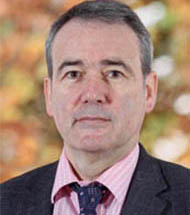News
LATEST NEWS AND EVENTS FROM THE SCHOOL OF ENGINEERING
It is not enough to debug
Eduardo Ayesa, researcher of the Water and Waste group of Ceit-IK4 and Full Professor of Tecnun, talks about the ambitious challenge to optimally use all resources.

We reproduce the article recently published in The Diario Vasco by Eduardo Ayesa, researcher of the Water and Waste group of Ceit-IK4 and Full Professor of Tecnunin which he discusses the new and ambitious challenge to optimally use all resources.
"We have recently learned that the European Justice has just fined Spain 12 million euros for failing to comply with European legislation on the discharge of urban wastewater for seventeen years. And we are repeat offenders, because we were already condemned in 2011. Beyond the fact that in this country we continue to show limitations to complete the tasks in due time, it must be recognized that a good part of the infrastructures necessary to solve the current non-compliance of discharge are already built or close to completion.
The responsible authorities have already hastened to respond that the pending work is well advanced and the new Ministry for Ecological Transition is already working on the purification plan announced just a few weeks ago by its head, Teresa Rivera, which should completely eliminate these breaches and the corresponding penalties. However, the fact that Europe has already stopped fining us should not make us think that wastewater treatment in Spain is an approved subject . We still have several important issues pending that we will have to address decisively in the coming years.
After several decades in which the priority has been to extend sanitation to the largest possible percentage of the population by building and commissioning new wastewater treatment plants, the time has come to focus on the efficient exploitation of the available infrastructures, optimizing their operation from an environmental and economic point of view. Fortunately, water is no stranger to 4.0 technologies and today we have monitoring and control equipment that we could not have imagined a few years ago. Now it is up to us to make the most of them and operate treatment plants and drainage and sanitation networks with the efficiency required of any industrial process.
Another important challenge pending in Spain is the sustainable sanitation of small towns. The high percentage of urban wastewater that is already properly treated in the treatment plants of large cities should not mask the urgent need to build the most appropriate treatment systems for small municipalities, which account for a small percentage of the population, but generate significant diffuse pollution, often in environments with high environmental impact. It is not enough to adapt the technologies already validated in larger plants, but specific treatment systems must be designed to adapt to the needs and possibilities of these small population centers.
Finally, I would like to stress in a special way the need to evolve our perception of wastewater management and treatment, so that we stop seeing it as a problem and start seeing it as a resource, in coherence with the new ideas of the circular Economics . As is already happening in many other areas of industrial activity, the paradigm of wastewater treatment is changing rapidly and treating pollutants will no longer be enough. Modern wastewater treatment plants must be conceived as plants producing reclaimed water, energy, biogas, fertilizers and other compounds. In recent years, new technologies are being developed and validated that are making this possible.
In the case of Spain, taking into account its water limitations, the importance of its primary sector and the consequences of climate change, it is urgent to promote the progressive transformation of many urban wastewater treatment plants into irrigation water production plants for agriculture, guaranteeing the necessary sanitary safety and providing the necessary fertilizers. It is paradoxical that a large part of the operating costs of urban wastewater treatment plants is used to eliminate nutrients from wastewater before it is discharged into rivers or coasts, while farmers in the area suffer water shortages and must also invest in fertilizers that provide the land with those compounds that we are eliminating with so much effort.
Much work remains to be done to achieve sustainable management of sanitation systems, beyond purifying pollutants and avoiding fines. The new and ambitious challenge is to optimally use all resources, and Spain has a great opportunity to turn its problems into opportunities, joining the countries that are leading the profound transformation towards the circular Economics demanded by the sector."

